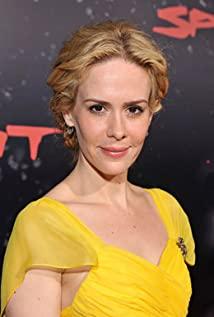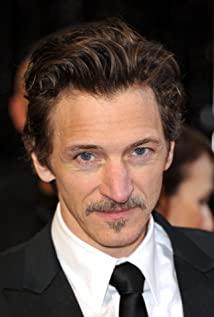"Double Martha" has an open ending, giving us such a desperate conclusion. This is by no means a good-looking or interesting movie. The messy and trivial clips, the texture of the film grain, the trance of natural light, and the depressive soundtrack like white noise outside the plot, all the time convey a sense of emptiness and alienation of "being elsewhere" and "not here" , As if in the process of watching, people will be insane at any time, but it alludes to the embarrassing dilemma of those who try to maintain an independent personality in today's society.
In the film, everything is contradictory. The cult farm is quiet and peaceful, the relationship between people seems close and natural, and the guitar music is peaceful and sweet. All of these can't hide the consistent and heart-pounding smile of the leader Patrick. All inflammatory words, mutual hypnosis between the victims, crime and violence outside the circle, lack of material, and the peace and satisfaction of the farm members as a contrast, people lose themselves for a long time, and even their names will be lost. , Can be changed arbitrarily, but no one cares. . . Said it is a nightmare and a fable, but the more it looks, the more it looks like a bloody reality.
And what about returning to the mainstream society? There are relatives here, but family affection has barriers and boundaries. It seems to be inferior to the cult farm's infiniteness, interest calculations, and dislocation of values. Here, economic factors are the only weight to measure people's social value and status, in the words of Brother Martha. Say, if you live in my house and eat my food, you should respect our values, and you are not qualified to use your saint's theory to judge the character of the person who feeds you.
In the cult farm, Martha has nothing but respect and social status, well, at least on the surface, where she is a leader and spiritual mentor; at home, she is much richer in material than the farm, but in There, she didn't even have a job, so she would only cause trouble to others, and it would be a burden to others.
In fact, from the perspective of the movie, the cult farm and the mainstream society are two sides of the same body. Both are using a beautiful guise to cover up some things that make it impossible to publicly declare. The only difference is that one consumer material and the other consumer spirit. In essence, it is to ask people to burn their lives for an inexplicable, other people's goal in accordance with other people's rules. Try to squeeze out all the valuable things in your life that belong to you. In a cult farm, those things are women’s youth and body. In the mainstream society, those things are your energy and wisdom, and then you can get a little bit of your own limited things from it. In mainstream society, that thing is still on the drawings, the apartment that the sister's family will own; in the farm, that thing is the social recognition that Martha has already obtained. These things are also easy to be deprived of-my sister's family is because the bank refuses to continue lending; Martha is because she refuses to accept the brainwashing of a cult in an attempt to retain her self-cognition. . . . . . Of course, the mainstream society is different from cults because it has a concept of scale, which leaves room for people to change, and it also leaves room for self-defense. . . . . .
Fortunately, the film did not completely block the way out. The director gave a third way-a mental hospital, where you will neither have the troubles of social identity, nor will there be conflicts of values, where you are P. . . . . . This may be the final destination of all those who are pure in spirit and clear-headed? Speaking of this, I can't help but recall the clear-thinking neuroses I know. . . . . . Fortunately, I have not been pure enough to want to completely break with this mainstream society. . . . . . Maybe I can be rescued again? . . . . . . .
View more about Martha Marcy May Marlene reviews











